يحاول ذهب - حر
SEARCHING FOR AUSSIE DINOSAURS
September-October 2024
|Australian Geographic Magazine
Our understanding of where to find ancient life in Australia has been turned on its head by a new appreciation of the country's geology. Now the world is looking to our vast outback as the latest hotspot to locate fossils.

IT’S THE SECOND day of the annual dinosaur dig hosted by Eromanga Natural History Museum (ENHM) and expectations are high. At a dig site at Plevna Downs, a 1210sq.kmworking sheep and cattle property about 90km south-west of the outback Queensland town of Eromanga, six people are kneeling in the dirt, deftly and patiently wielding trowels, dustpans and brushes to painstakingly clear away the sandy soil grain by grain. Sitting loosely between them on the surface are three tailbones of a sauropod, a herbivorous dinosaur that roamed here during the late Cretaceous, some 95 million years ago (mya).
Australia is entering a golden age of dinosaur discovery, following a new appreciation of the continent’s unique geology and how that affects the way we’ve been looking for ancient fossils across the continent. In North America and China – traditionally regarded as the world’s major “dinosaur hotspots” – fossils are usually exposed in the eroding rocks of mountains, hills, valleys and canyons. But that’s not the case in Australia, the world’s flattest continent. Here, the landscape is highly eroded, and because it has been subjected to millions of years of weathering, it was once widely assumed that most of Australia’s dinosaur fossils had eroded over time. But a number of sites across the continent are proving this wrong, and Plevna Downs is one of them.
هذه القصة من طبعة September-October 2024 من Australian Geographic Magazine.
اشترك في Magzter GOLD للوصول إلى آلاف القصص المتميزة المنسقة، وأكثر من 9000 مجلة وصحيفة.
هل أنت مشترك بالفعل؟ تسجيل الدخول
المزيد من القصص من Australian Geographic Magazine
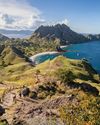
Australian Geographic Magazine
SULAWESI SENSATIONS
There are worlds within worlds and marvels untold waiting to be experienced on Indonesia's remote islands.
9 mins
September-October 2024
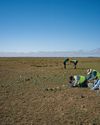
Australian Geographic Magazine
SEARCHING FOR AUSSIE DINOSAURS
Our understanding of where to find ancient life in Australia has been turned on its head by a new appreciation of the country's geology. Now the world is looking to our vast outback as the latest hotspot to locate fossils.
18 mins
September-October 2024
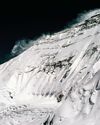
Australian Geographic Magazine
THE HARDEST NIGHT
The first Australian ascent of Mt Everest in 1984 is one of the great feats of mountaineering. Climbed by a small team semi-alpine style, with no bottled oxygen, via the Great (Norton) Couloir, it remains unrepeated 40 years later.
14 mins
September-October 2024
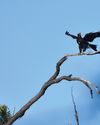
Australian Geographic Magazine
WEDGE-TAILED WONDER
The chance discovery of an eagle nest leads to an extended vigil observing normally hidden behaviours of one of nature's supreme winged marvels.
3 mins
September-October 2024
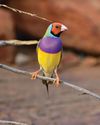
Australian Geographic Magazine
BURDENED BY BEAUTY
Northern Australia's Gouldian finch survives in huge numbers in cages around the world, but its wild population continues to struggle.
4 mins
September-October 2024
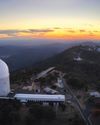
Australian Geographic Magazine
A TELESCOPE FOR A GOLDEN AGE
After a stellar 50 years as one of the country's major scientific assets, the AAT continues to play a major role in keeping Australian astronomy on the world stage.
7 mins
September-October 2024
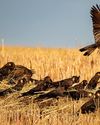
Australian Geographic Magazine
COCKY WHISPERING AT COOMALLO CREEK
This patch of remnant bush on the edge of the West Australian wheatbelt is a place loved by one of Australia's rarest bird species and the man who has studied the site for more than 50 years.
6 mins
September-October 2024

Australian Geographic Magazine
A PIONEERING PAIR
Louisa Atkinson and her mother, Charlotte, were among Australia's earliest authors, and pioneers in women's rights.
9 mins
September-October 2024
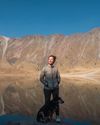
Australian Geographic Magazine
THE LONGEST WALK
Lucy Barnard is walking from Argentina to Alaska -the length of the Americas - on an extraordinary journey of endurance and adventure.
6 mins
September-October 2024
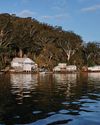
Australian Geographic Magazine
SECLUDED, BUT NOT ALONE
In an era of heightened social isolation, where many of us lead lonely lives, Dangar Island offers the chance to be part of a supportive, connected community.
7 mins
September-October 2024
Listen
Translate
Change font size

